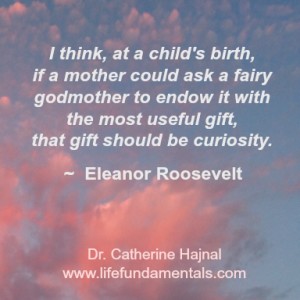 Inviting curiosity…
Inviting curiosity…
When I’m about to start working with a group that I have never worked with before I’m usually feeling a little anxious. I’m wanting to be there, but my needs for predictability, connection, contribution, they are all flaring up in that moment in part because I don’t know for sure what is coming next.
One of the ways I try and bring some ease in those circumstances is to invite my curiosity.
Who is out there?
What did they have for lunch?
I wonder what their hurts are?
What will I learn from them?
What will I discover about myself through our interaction?
How might I make a difference in someone’s life today?
Being purposeful about being curious shifts my energy from a sensation of constriction to a sensation of openness and possibility.
Friend or foe…
Imagine going into a job interview.
Imagine going on a blind date.
Imagine you are walking on the street and someone is walking towards you yelling loudly in a language you don’t understand.
Imagine you are approaching a customer service rep at the counter after delayed or cancelled flights and there is no clear indication of how you are going to get home.
Imagine you feel guilty about something you could have done, an action you should have taken.
Being curious doesn’t equate with putting yourself in harms way. It doesn’t excuse bad service. It doesn’t deny the reality of difficult circumstances. It can however invite us to see the humanness in others and it invites us to acknowledge the humanness in ourselves.
In unknown, awkward, or difficult circumstances our starting point is often fear or anxiousness. Our amygdala, part of the limbic region in our brain, is playing a constant stream of “Am I safe? Do I belong? Am I safe? Do I belong?” In other words we’re a little on edge and we’re checking each other out to assess friend or foe.
When compassion feels hard…
Am I not just advocating being compassionate? Nope. I appreciate the language of compassion and empathy. On some level I resonate with the statement “All you need is love.” But in my reality, and I suspect it is the same for others, sometimes I can’t jump right into love. I have my own things going on – maybe I’m triggered by the circumstances and/or what someone has said – and so love, compassion, empathy feel hard to connect with in those moments.
What I can direct my energy towards however is curiosity. I don’t have to love you or even like you in that moment. But if I can be curious, it feels like I’m leaving a door open, I’m open to possibilities. If I’m there with curiosity, then I’m listening with a willingness to be changed.
Our human needs for sense and meaning making, for learning and growth – these are the foundations for curiosity. I think curiosity is also interwoven with empathy, but sometimes we can’t jump right into each others experiences from a place of shared resonance. But I can be curious. I can be wondering what is going on for you.
And when I’m in one of my own funks, when things are not going right, or actually might feel terribly wrong, I can be curious about what might be going on for me. Which of my needs are not being met? You have the same options when you’re in a funk, when things are not going right – what might your present experience be asking of you? Which needs of yours are not being met?
And by the way your brain seems to function well under conditions of curiosity as well – at least from the stand point of learning and memory.
So the next time you’re feeling a little on guard or triggered be curious about the person sitting across from you. And if you are being really hard on yourself, be curious about the person in the mirror.
Willing to try being purposeful with your curiosity? Let me know how it goes in the comments below…
© Dr. Catherine Hajnal 2015. All rights reserved.
